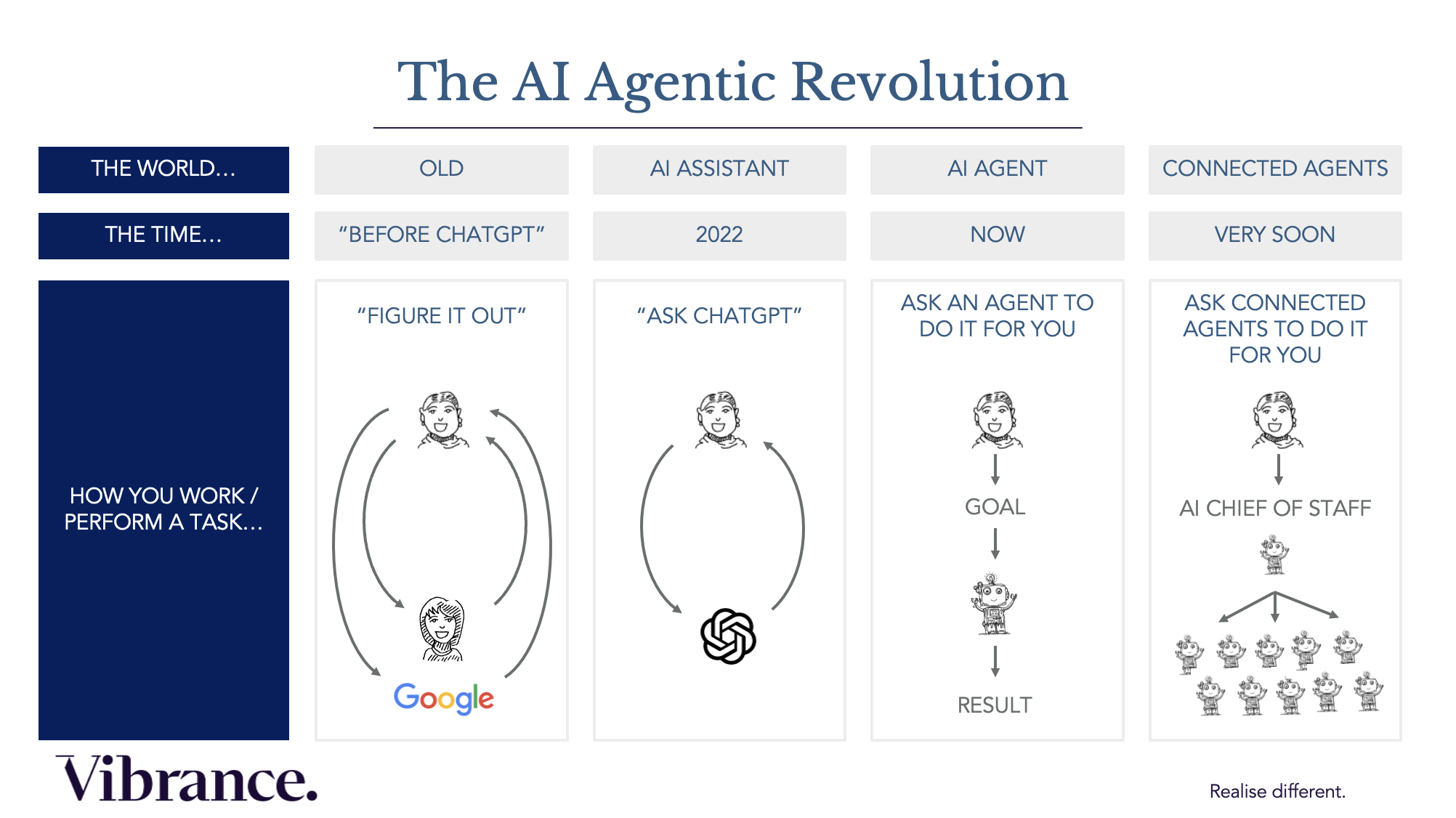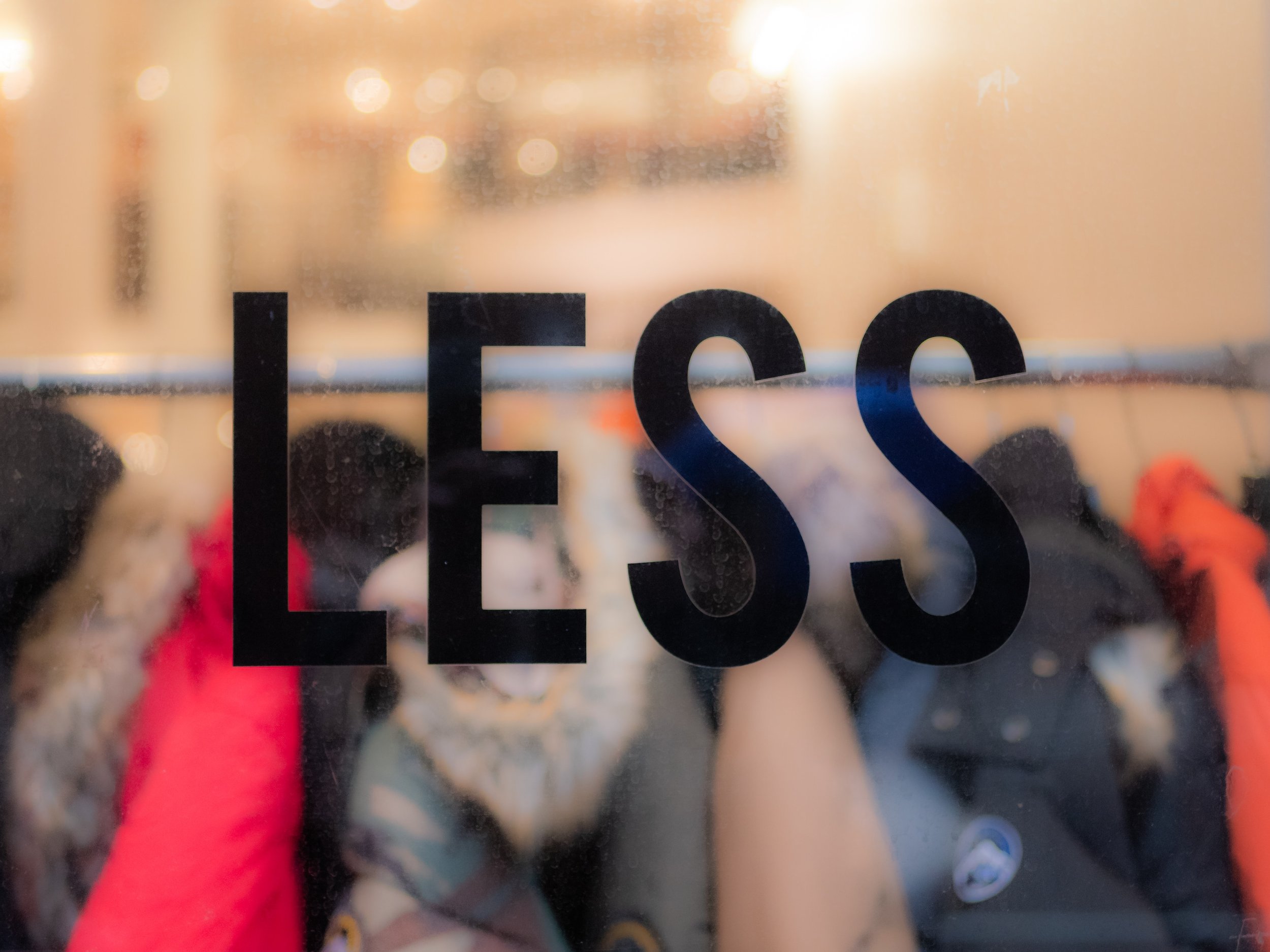The AI Agentic Revolution… and the end of work as we know it
Every once in a while, the rules of work change. Quietly at first. Then all at once.
If you’ve felt like your habits, tools, or even your role are being redefined lately… you’re not imagining it. If you’ve felt that the way you work differs from some of your colleagues… you’re not alone.
We’re currently living through the AI Agentic Revolution—a shift from doing the work to briefing the AI agents that do it for you.
This shift occurs in four steps, creating four distinct worlds of work. It is unlikely that we are all in the same one, hence the significant differences we've noticed lately in how people approach their work.
Let me walk you through it. Here’s the map:
1. The Old World
“When you have something to do, the general rule was Figure It Out”
Before ChatGPT, let’s call this period “BC” (Before ChatGPT), our work approach was simple. You had a task, so you figured it out. Whether you already knew how to handle it, searched on Google, or asked a colleague, the work always came back to you.
Tools were informational, not operational. They helped you learn but not do the work itself. Even when searching something, you had to click, read, compare, decide, and finally execute the task.
This was the era of the DIY worker. Knowledge search engines and collective resources supported the human worker, but ultimately, you were at the center of the effort.
In that world, you had to know why you needed to complete the task, how to do it, and most importantly, you still had to accomplish it.
2. The World of AI Assistants (2022)
“When you have something to do, the rule becomes Ask ChatGPT”
Then came the disruption in late 2022 with the release of ChatGPT.
Suddenly, instead of merely searching, we asked. ChatGPT didn’t just tell us how to do something; it often just did it for us.
Write an email.
Summarize a paper.
Translate a paragraph.
Fix a piece of code.
We all gained an assistant, marking the beginning of a new behavior. You had a task? You simply asked the AI Assistant to handle it, and often, that was enough.
Millions of knowledge workers shifted overnight from doing the task to typing a prompt.
Of course, the AI Assistant could not perform every task we faced daily. However, when it could not complete the task directly, it could provide a roadmap on how to do it.
As a result, search engines began to feel slower, older, and less helpful. The age of the assisted worker began.
In that world, you needed to understand why you required a task, but you didn't necessarily need to know how to do it. Often, you still had to execute it in the end.
3. The World of AI Agents (Now)
“When you have something to do, now you just ask an agent to do it for you”
Today, the rules governing how we work have changed again. Instead of asking one general-purpose AI assistant to handle everything, you delegate tasks to a specialist agent.
A design agent to build your PowerPoint deck.
A research agent to analyze market data.
A legal agent to review contracts.
A pricing agent to model financials.
No longer do you guide the work step by step. Instead, you clarify the goal, choose the right agent, and let it run. This is something I do every day.
I utilize a meeting summarizer that allows me to engage with past meetings. An image agent edits my keynote photos without me needing to touch my mouse. A learning agent transforms dense strategy papers into podcasts I can listen to on the go. Afterwards, I can join and ask precise questions.
This doesn't just represent productivity software. This is invisible labor.
The more I delegate, the more I realize that my role is no longer to do the work. My role has shifted to designing the system of agents that accomplishes the work.
The world of the agents’ leader has begun. In this world, you still need to know why you need a task completed, but you no longer need to know how to accomplish it or even do it yourself.
4. The World of Connected Agents (Very Soon)
“Soon you’ll have lots of connected agents working for you on bigger tasks”
The next frontier is imminent. We’re already witnessing its emergence. It will arrive faster than expected.
In this next world, you’ll work not just with individual agents, but also brief your AI Chief of Staff. It will coordinate a team of agents on your behalf.
Do you need to write a complex client proposal? Simply set the objective. Your Chief of Staff activates all necessary agents:
One for research.
One for writing.
One for slide design.
One for pricing.
One for quality & compliance.
These agents will collaborate, share context, resolve overlaps, and produce the required output.
Your role? Define the goal and review the outcome.
No email chains. No meetings. No coordination headaches. No glaring oversight of key requirements. No last-minute panics before submission deadlines.
In this world, you won’t need to know why tasks need doing, let alone how or if you complete them. You won’t even need to care. Just establish and communicate the overall objective while someone else determines and manages the required tasks.
This is not assistance. This is orchestration.
Which world are you working in?
Are you still Googling everything? Still trying to figure it all out on your own? Still juggling every task instead of allowing a team to support you?
While you’re busy doing that, others are:
Delegating to invisible teams of AI agents.
Designing workflows that operate 24/7.
Reclaiming time to focus on strategy, leadership, and creativity.
The AI Agentic Revolution isn’t coming; it’s already here. It marks the end of work as we know it, whether we like it or not.
The only question is: which world of work are you currently residing in?
Reach out if you’d like to discuss our experiences of working in this new world, or share some of your insights. We would love to hear from you!
Note: an earlier version of this post was originally published on the Vibrance blog




















